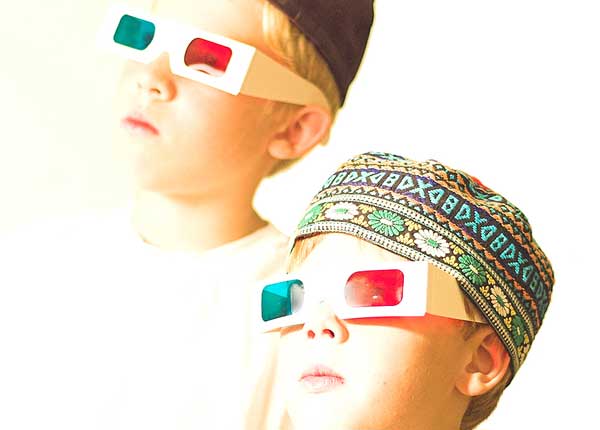
[Image above] Credit: darkmatter on Flickr (Creative Commons License).

Though a majority of Americans feel science and technology mostly positively impact society, they also feel very strongly that certain advances, including elder care by robots (like the Care-O-Bot pictured above), remain off limits. Credit: Jiuguang Wang on Flickr (Creative Commons License).
If you’re standing, you may want to sit down.
Pew Research Center, in partnership with Smithsonian Magazine, asked Americans what they think about science, and their answers—which range from optimistic to downright dismal—may surprise you.
The survey found that most believe the next half-century will be a time of “profound scientific change, as inventions that were once confined to the realm of science fiction come into common usage.” But though the majority (59 percent) of Americans think those profound scientific changes will positively impact society, a solid 30 percent of respondents think we will actually be worse off than we are today.
The 1,001 adults surveyed by phone were asked about their views on everything from robots and bioengineering, to teleportation and space colonization.
Here’s a sampling of how “we” feel about:
Advances in health. Eighty-one percent of respondents expect that lab-grown organs will become the norm in the next 50 years. The possibility of altering DNA to produce “smarter, healthier, or more athletic” offspring is a turnoff to 66 percent of the American public who believe such practices would be a change for the worse. A similar number (65 percent) believe elder care by robots is just wrong and impact society negatively.
(Aero)space. One in three Americans expect that we’ll be living on other colonized planets by 2064, but fewer than half (39 percent) anticipate science will have developed teleportation technology. A majority of respondents (63 percent) think allowing personal or commercial drones in U.S. airspace would be a change for the worse.
Glass, Google Glass (and other information-displaying devices). Fifty-three percent of Americans think it would be a change for the worse if devices that display information about the world around them (i.e., Google Glass) become widely accepted.
Other insights?
On being the first at anything. When it comes to trying out new technologies, Americans are almost evenly split. Driverless cars? Forty-eight percent are down to drive less; 50 percent are not-quite-sold. Only 26 percent of respondents would be willing to test out a brain implant to improve their memory, and one in five said they’d eat meat grown in a lab.
On owning their own innovations. Though a majority of respondents were uninterested in paving the way for futuristic innovations, most indicated they would be willing to purchase technologies around three very direct themes: improvements to travel (a la flying cars, bikes, and personal spacecraft); time travel; and scientific advances that would extend their life or cure major diseases like cancer. Most. Eleven percent said there are no futuristic innovations they would like to own or were just downright uninterested in any innovations. Another 28 percent remain undecided on owning or not owning their own piece of science.
On gender, education, and age. Men were more likely to be optimistic about the impact of advancements on society. Males with college degrees had a particularly sunny outlook, with 79 percent expecting technology to positively impact life in the future. And all respondents, regardless of age, were equally positive about the long-term impact of science and technology.
To view the full report, including the questions and methodology, click here.
And for some additional (and related) reading, check out fellow editor April’s recent post on the complicated relationship between creativity and innovation.
Author
Jessica McMathis
CTT Categories
- Aeronautics & Space
- Basic Science
- Education
- Electronics
- Energy
- Environment


